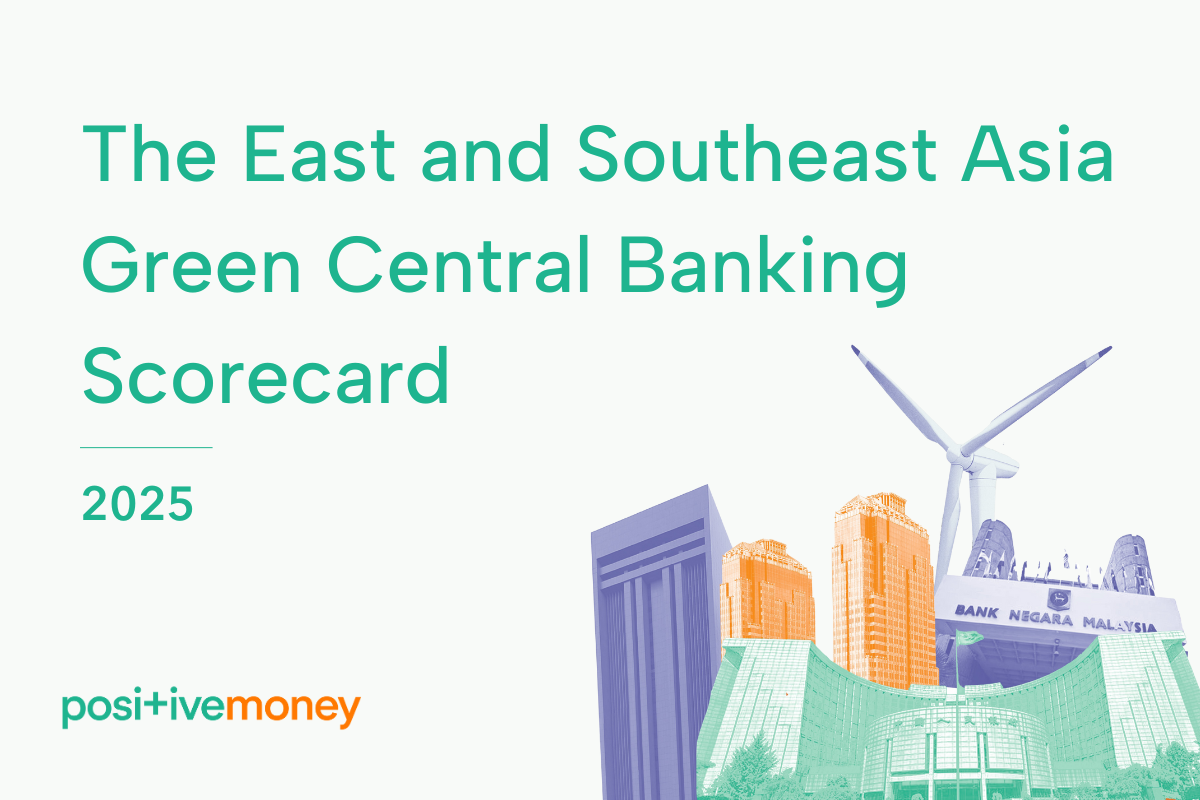The East and Southeast Asia Green Central Banking Scorecard
The East and Southeast Asia Green Central Banking Scorecard analyses the progress of central banks and financial supervisors in the ASEAN Plus Three countries towards aligning their policies with addressing the ecological crisis.

The East and Southeast Asia Green Central Banking Scorecard analyses and scores the 13 countries of the ASEAN Plus Three (APT) based on their central banks’ and financial supervisors’ progress in aligning their policies with addressing the ecological crisis. The APT includes the ten member states of the Association of Southeast Asian Nations (Brunei, Cambodia, Indonesia, Lao PDR, Malaysia, Myanmar, Philippines, Singapore, Thailand, and Vietnam) and the three major East Asian economies of China, Japan and Republic of Korea.
The actions of central banks and financial supervisors are assessed across four categories: Research and Advocacy, Monetary Policy, Financial Policy, and Leading by Example. Policy data collection is based on literature reviews, expert consultations, and direct communications with the institutions studied. The methodology is based on that of our G20 Green Central Banking Scorecard series, with adaptations made for the East and Southeast Asian context.
This report is the first of its kind to provide a country-by-country analysis of green central banking in the APT, providing a benchmark against which to measure future progress. Analysis of progress draws not only on our scoring framework but also consideration of the widely varying characteristics of each country and the different political and economic contexts they are operating within. While no country is found to be implementing green central banking policies at a scale commensurate with the severity of the ecological crisis, the level of development of policies across the 13 countries varies dramatically.
China sits at the top of a cluster of countries with the most developed green central banking policies in the APT, which also includes Malaysia, Singapore, Indonesia, the Philippines and Japan. Notably, this group contains many of the largest economies in the region. Several of these strongest performers exhibit different forms of close coordination between the central bank and national government.
A second distinct cluster of five countries with the least developed policies was also found, including Vietnam, Cambodia, Lao PDR, Brunei, and Myanmar. The scores of these countries indicate they are at very early stages of exploring green central banking policies. The capacities of these countries to implement strong green central banking policies are more constrained than those of the top performing countries, due to factors such as legacies of colonial exploitation, wars, and marginalisation within the unequal international monetary and financial system. Thailand and the Republic of Korea sit in the middle of these two clusters.
Building on initial progress in the region, the APT countries with greater economic power and larger historical contributions to environmental degradation should be expected to show the strongest leadership in advancing green central banking frameworks. Crucially, the more vulnerable and less-resourced countries of the APT should receive support to develop their green central banking policies from those with greater capacities, both within the region and beyond. This can occur through the ASEAN and APT collaborative platforms, bilateral partnerships, and international frameworks such as the UNFCCC.
At the same time, transformation of the international monetary and financial system is required to address its fundamental imbalances which hamper both the monetary and fiscal policy space of many nations in Southeast Asia. Without such changes, green central banking in East and Southeast Asia is likely to continue its uneven development, which risks certain countries being left behind amidst a wider regional green transition.
Download the full report here.
(Free, PDF, 56 pages)
Contact:
Read our press release for the Scorecard launch here.
For press enquiries about the East and Southeast Asia Green Central Banking Scorecard, please contact press@positivemoney.org.
